Renault Mégane vs Lexus UX – Technische Daten, Verbrauch & Preise im Vergleich
Welches Modell überzeugt mehr – der Renault Mégane oder der Lexus UX?
Wir vergleichen für dich Leistung (218 PS vs 204 PS), Kofferraumvolumen (389 L vs 367 L), Verbrauch (15.40 kWh vs 16.70 kWh5 L) und natürlich den Preis (38300 Fr. vs 40900 Fr.).
Finde jetzt heraus, welches Auto besser zu dir passt!
Der Renault Mégane (SUV) wird mit einem Elektro-Motor angetrieben und ist mit einem Automatik Getriebe ausgestattet. Im Vergleich dazu hat der Lexus UX (SUV) einen Elektro oder Voll Hybrid-Motor und ein Automatik Getriebe.
In Sachen Kofferraumvolumen bietet dir der 389 L beim Renault Mégane bzw. 367 L beim Lexus UX ausreichend Platz – je nachdem, worauf du Wert legst. Wer mehr Leistung sucht, muss wählen ob die 218 PS des Renault Mégane oder die 204 PS des Lexus UX für die eigenen Bedürfnisse genügen.
Auch beim Verbrauch unterscheiden sich die beiden Modelle: 15.40 kWh vs 16.70 kWh5 L. Preislich liegt der Renault Mégane bei 38300 Fr., während der Lexus UX bei 40900 Fr. zu haben ist.
Vergleiche alle Daten direkt und finde heraus, welches Modell zu deinem Lifestyle passt!
In the competitive subcompact crossover segment, the Lexus UX stands out with its luxurious interior and hybrid efficiency, making it an attractive choice for eco-conscious urban drivers. In contrast, the Renault Mégane offers a more affordable yet versatile hatchback option, with a focus on practicality and spirited handling. Ultimately, the choice between these two models hinges on the buyer's preference for upscale features versus budget-friendly functionality.
Renault Mégane
The Renault Mégane stands out in the hatchback segment with its chic design and advanced technology features. Its interior offers a spacious and comfortable environment, providing both driver and passengers with a premium experience. Combining impressive handling with economical efficiency, the Mégane caters to those seeking style and practicality in their daily commute.
Details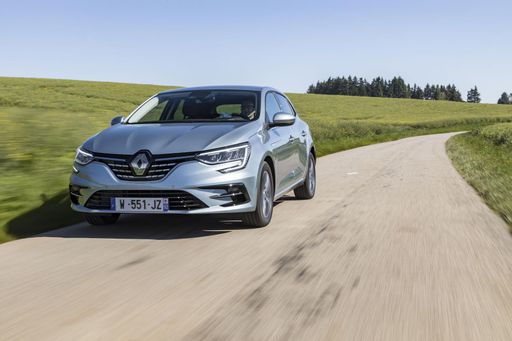 @ Renault
@ Renault
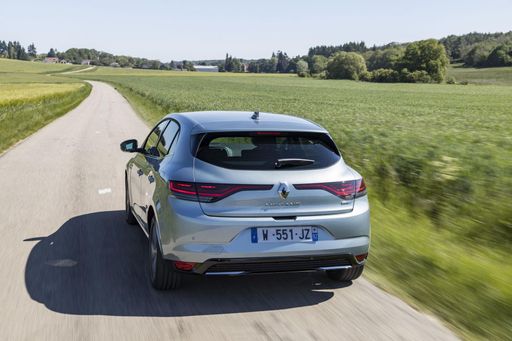 @ Renault
@ Renault
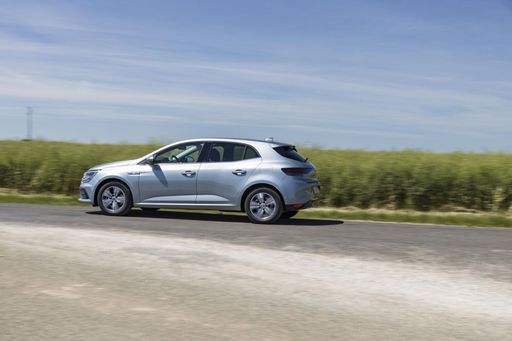 @ Renault
@ Renault
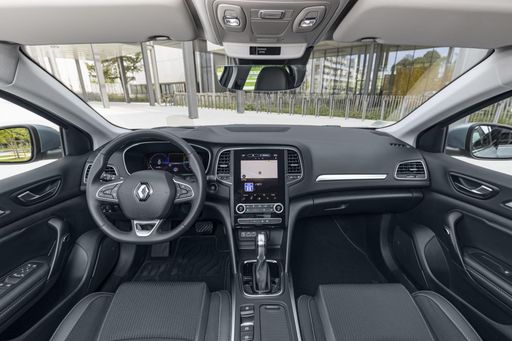 @ Renault
@ Renault
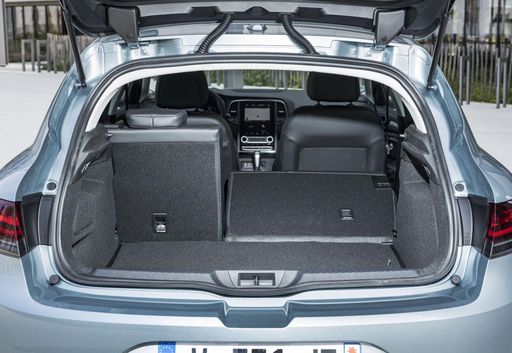 @ Renault
@ Renault
Lexus UX
The Lexus UX is a compact SUV that effortlessly blends sleek design with urban agility, making it a perfect choice for city driving. Its interior is thoughtfully crafted, offering both comfort and sophistication with high-quality materials and advanced technology features. This vehicle provides a smooth and refined driving experience, making it both a practical and stylish option for modern motorists.
Details @ toyota-media.de
@ toyota-media.de
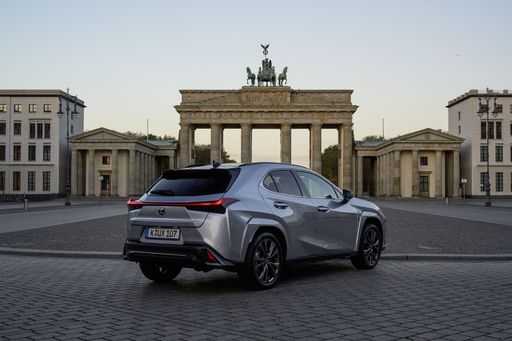 @ toyota-media.de
@ toyota-media.de
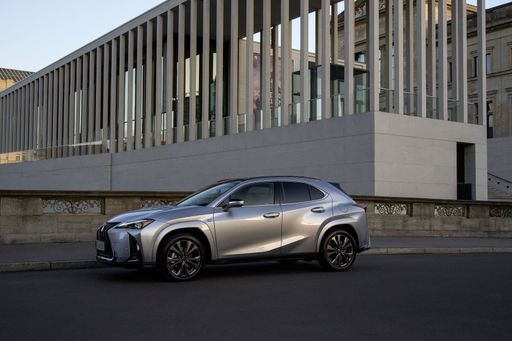 @ toyota-media.de
@ toyota-media.de
 @ toyota-media.de
@ toyota-media.de
Compact SUVs on the Rise: Lexus UX vs. Renault Mégane
In the competitive landscape of compact SUVs, the Lexus UX and the Renault Mégane stand out with their unique offerings. Both vehicles appeal to urban drivers seeking efficiency without sacrificing style or comfort. This article delves into the technical aspects and innovations of both models, providing a detailed comparison to help potential buyers make an informed choice.
Performance and Powertrains
The Lexus UX boasts an impressive power range of up to 204 HP, with options for both electric and full hybrid engines. It can accelerate from 0-100 km/h in a brisk 7.5 seconds, making it one of the quicker choices in its class. The vehicle offers a choice between front-wheel and all-wheel drive, enhancing its versatility in various driving conditions.
Conversely, the Renault Mégane, while slightly less powerful with a top output of 218 HP, provides an appealing electric-only version that delivers a smooth drive with immediacy in its torque delivery. The Mégane can push from 0-100 km/h in just 7.4 seconds, making it a strong contender as well. However, its performance is somewhat limited by its front-wheel-drive configuration.
Efficiency Ratings
When it comes to efficiency, the Lexus UX claims an average consumption of 5 L/100 km or 16.7 kWh/100 km for its electric variant, offering a remarkable electric range of 449 km. This makes it a suitable choice for eco-conscious drivers. Additionally, the Lexus UX releases a CO2 ranging from 0 to 127 g/km, which places it in various efficiency classes from A to C.
On the other hand, the Renault Mégane shines with its electric consumption figures, averaging between 14.9 to 15.4 kWh/100 km, alongside an electric range that spans from 308 km to 460 km. Notably, the Mégane achieves a CO2 efficiency class of A, thanks to its zero CO2 emissions from its electric variants.
Dimensions and Comfort
Dimensionally, the Lexus UX stands at 4495 mm in length, 1840 mm in width, and 1545 mm in height. This SUV offers a spacious cabin for up to four passengers and boasts a trunk capacity of 367 liters, perfect for weekend getaways or daily commutes. The UX's curb weight varies, generally being heavier at around 1875 kg depending on the configuration.
The Renault Mégane, on the other hand, measures 4200 mm in length and is slightly narrower at 1768 mm, with a height of 1505 mm. It comfortably seats up to five passengers and has a trunk capacity of up to 389 liters, providing utility without a weight burden, with curb weights ranging from 1616 to 1711 kg.
Innovations and Technology
In terms of technology, the Lexus UX is equipped with advanced driver assistance systems, high-definition displays, and smartphone integration that enhances the driving experience further. Innovations like adaptive cruise control and lane-keeping assist are standard, alongside Lexus' intuitive infotainment system.
Meanwhile, the Renault Mégane also brings an impressive tech suite to the table, including advanced safety features such as emergency braking and blind-spot monitoring, alongside a modern infotainment system that supports the latest smartphone technologies. Its user-friendly interface and responsive touchscreen contribute to an engaging driving environment.
Conclusion: Which SUV Reigns Supreme?
Ultimately, the choice between the Lexus UX and the Renault Mégane may boil down to personal preference and specific needs. The UX offers higher performance and greater electric range, making it a fantastic option for those who prioritize power and luxury. In contrast, the Mégane's lower emissions and efficient electric variants appeal strongly to eco-minded drivers on a budget. Both vehicles bring significant innovations and capabilities to the compact SUV market, ensuring that customers will find a model that suits their lifestyle.

|

|
|
|
|
Kosten und Verbrauch |
|
|---|---|
|
Preis
38300 - 42000 Fr.
|
Preis
40900 - 58900 Fr.
|
|
Verbrauch L/100km
-
|
Verbrauch L/100km
5 - 5.6 L
|
|
Verbrauch kWh/100km
15.40 kWh
|
Verbrauch kWh/100km
16.70 kWh
|
|
Elektrische Reichweite
452 km
|
Elektrische Reichweite
450 km
|
|
Batteriekapazität
-
|
Batteriekapazität
-
|
|
co2
0 g/km
|
co2
0 - 127 g/km
|
|
Tankgröße
-
|
Tankgröße
43 L
|
Maße und Karosserie |
|
|---|---|
|
Karosserie
SUV
|
Karosserie
SUV
|
|
Sitze
5
|
Sitze
5
|
|
Türen
5
|
Türen
5
|
|
Leergewicht
1719 kg
|
Leergewicht
1495 - 1875 kg
|
|
Kofferraum
389 L
|
Kofferraum
283 - 367 L
|
|
Länge
4200 mm
|
Länge
4495 mm
|
|
Breite
1783 mm
|
Breite
1840 mm
|
|
Höhe
1505 mm
|
Höhe
1540 - 1545 mm
|
|
Zuladung
446 kg
|
Zuladung
370 - 615 kg
|
Motor und Leistung |
|
|---|---|
|
Motorart
Elektro
|
Motorart
Elektro, Voll Hybrid
|
|
Getriebe
Automatik
|
Getriebe
Automatik
|
|
Getriebe Detail
-
|
Getriebe Detail
-
|
|
Antriebsart
Frontantrieb
|
Antriebsart
Frontantrieb, Allrad
|
|
Leistung PS
218 PS
|
Leistung PS
199 - 204 PS
|
|
Beschleunigung 0-100km/h
7.40 s
|
Beschleunigung 0-100km/h
7.5 - 8.1 s
|
|
max. Geschwindigkeit
160 km/h
|
max. Geschwindigkeit
160 - 177 km/h
|
|
Drehmoment
300 Nm
|
Drehmoment
300 Nm
|
|
Anzahl Zylinder
-
|
Anzahl Zylinder
4
|
|
Leistung kW
160 kW
|
Leistung kW
146 - 150 kW
|
|
Hubraum
-
|
Hubraum
1987 cm3
|
Allgemein |
|
|---|---|
|
Modelljahr
2025
|
Modelljahr
2023 - 2024
|
|
CO2-Effizienzklasse
A
|
CO2-Effizienzklasse
A, C, D
|
|
Marke
Renault
|
Marke
Lexus
|
Renault Mégane
Breaking New Ground: The Latest Renault Mégane Models
The Renault Mégane has long been a staple in the line-up of urban-centric and energy-efficient vehicles. As the world leans more towards sustainable driving, the latest models of the Renault Mégane continue to push the envelope with its innovative features and technical prowess.
Innovative Powertrain: The Heart of Mégane
The latest Mégane series comes equipped with an electric motor, offering a performance range of 130 to 218 PS (96 to 160 kW). This ensures that drivers not only benefit from emission-free motoring but also from robust performance figures, with a torque ranging between 250 to 300 Nm. The models are designed to provide a seamless driving experience with their automated front-wheel-drive system.
Efficiency Meets Performance
These Mégane models boast electric consumption figures from 14.9 to 15.4 kWh/100 km, impressive for their class, and are capable of achieving a range between 308 to 460 km on a single charge. The acceleration from 0-100 km/h varies between a peppy 7.4 seconds to a more leisurely 10.5 seconds, depending on the variant, all while maintaining a top speed of 150-160 km/h.
Modern Appeal with Practical Design
Renault’s attention to design is evident in the Mégane's contemporary aesthetic. Whether you opt for the Equilibre, Evolution, Iconic, or Techno trim, each is packed with thoughtful features ensuring comfort for its five passengers and a reasonable boot capacity of 389 litres. The sleek SUV silhouette runs 4,200 mm in length and 1,768 mm in width, giving it a commanding road presence without compromising on practicality.
Cost Efficiency with Zero Emissions
With prices ranging from €35,600 to €45,900, the Renault Mégane offers a competitive edge in its segment. Additionally, the monthly operating costs sit comfortably between €914 and €1,092. The absence of emissions—at 0 g/km—further places these models in the coveted CO2 efficiency class of A, making them a thoughtful choice for environmentally conscious urban drivers.
Conclusion
The Renault Mégane models stand as a testament to the brand's commitment to innovation, efficiency, and style. With its competitive range, pricing, and features, it efficiently caters to the modern driver's needs, balancing power, efficiency, and sustainability seamlessly.
Lexus UX
Introducing the Lexus UX: A Modern Marvel on Wheels
In the competitive world of compact luxury SUVs, the Lexus UX stands out with its striking design and cutting-edge technology. As we delve into the intricate details of this vehicle, from its powertrains to its innovative features, the Lexus UX proves to be a formidable contender in its class.
Powertrain Options: Electric Efficiency Meets Hybrid Harmony
The Lexus UX offers drivers a choice between full electric and hybrid powertrains, catering to both eco-conscious consumers and those seeking traditional performance.
The electric variant, designated as UX 300e, boasts a powerful electric motor generating 150 kW, translating to a robust 204 PS. This model offers an impressive range of 449 km on a single charge, thanks to its 72.8 kWh battery, with a consumption rate of 16.7 kWh/100 km.
Meanwhile, the hybrid models, labelled UX 300h, combine a 2.0-litre petrol engine with an electric motor, resulting in a combined output of 199 PS. These hybrids offer fuel efficiency with consumption figures ranging from 5 to 5.6 L/100km, depending on the drivetrain configuration.
Driving Dynamics: Comfort and Precision Handling
Lexus has designed the UX with a focus on refining the driving experience. Both the electric and hybrid versions offer front-wheel-drive, while the hybrid model also features an all-wheel-drive option, providing enhanced traction and stability.
Automatic transmission systems come standard in the form of a reduction gear for the electric variant and a CVT gearbox for the hybrid. This ensures smooth and responsive shifts, enhancing the overall driving pleasure.
Innovative Features and Advanced Technology
The Lexus UX is equipped with a suite of advanced features designed to make driving safer and more enjoyable. The interior boasts the latest infotainment system, ensuring connectivity with integrated navigation and premium audio systems.
Customers can choose from various packages, including the Executive Line and F Sport Design, which offer a range of premium materials and amenities to elevate the in-car experience.
Furthermore, the UX series prioritises safety, earning high marks with its array of driver assistance systems, such as adaptive cruise control, lane-keeping assist, and pre-collision systems.
Sleek Design Meets Practicality
The exterior design of the Lexus UX is a blend of boldness and elegance. Its compact dimensions, with a length of 4495 mm, make it agile in urban environments while maintaining a commanding presence on the road.
Practicality is not sacrificed for style; with a boot capacity ranging from 283 to 367 litres, the Lexus UX offers ample storage space, making it ideal for both daily commutes and weekend getaways.
Conclusion: The Lexus UX - A Forward-Thinking Choice
The Lexus UX is a testament to the brand's commitment to innovation, offering a harmonious blend of performance, efficiency, and luxury. With its competitive pricing starting at €43,700, the UX series caters to a wide audience, offering both eco-friendly and performance-oriented options. It stands as a remarkable representation of modern automotive engineering, ready to meet the demands of discerning drivers.
Die angezeigten Preise und Daten sind Schätzungen, die auf deutschen Listenpreisen basieren, und können je nach Land variieren. Diese Informationen sind rechtlich nicht bindend.
